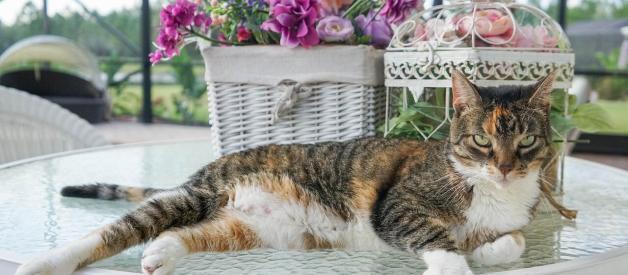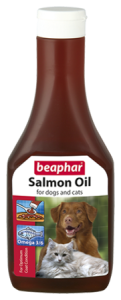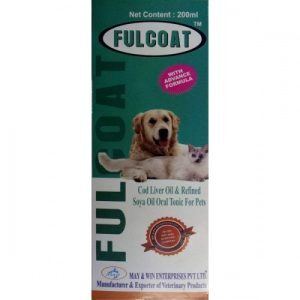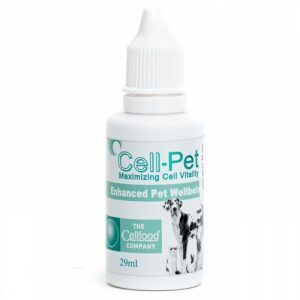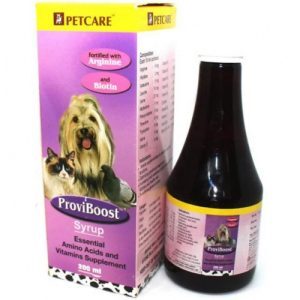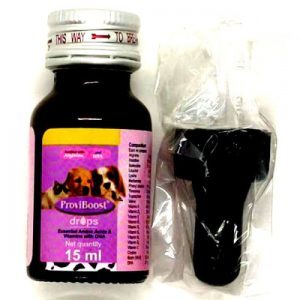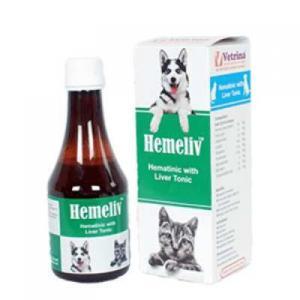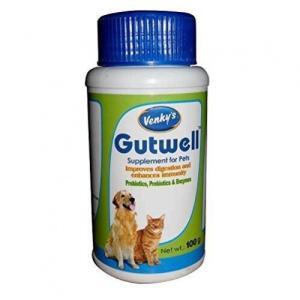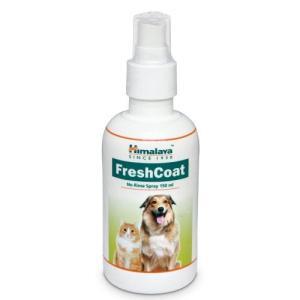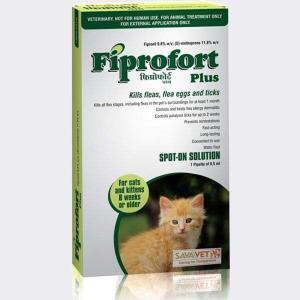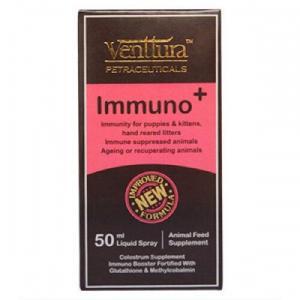Table of Contents
Keeping your cat healthy is crucial for several reasons. Firstly, a healthy cat leads to a higher quality of life for both the cat and its owner. A well-maintained cat is likely to be more active, playful, and engaging, enhancing the bond between you and your pet. Secondly, regular veterinary care and a balanced diet can prevent various health issues, saving you from potential emotional stress and financial burden. Thirdly, a healthy cat is less likely to pose health risks to humans in the household, as some feline conditions can be transmissible. Fourthly, maintaining your cat’s health contributes to the overall well-being of your household environment by reducing the risk of fleas, parasites, and other potential nuisances. Lastly, responsible pet ownership includes providing proper care, and ensuring your cat’s health is fundamental to fulfilling that commitment.
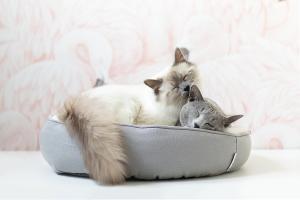
Basic Care to Ensure Your Cat’s Health
How to keep your cat healthy and happy?
Your cat’s health requires consistent and attentive care. Provide your cat with a well-balanced, age-appropriate diet that meets their nutritional needs. Consult your veterinarian or cat care center to determine the best type and amount of food for your cat’s age, weight, and health status. Always keep fresh water available for your cat. Proper hydration is essential for their overall health and bodily functions.
Schedule regular check-ups with a veterinarian. These visits help catch any potential health issues early and ensure that your cat’s vaccinations are up to date. Follow your veterinarian’s recommended vaccination schedule to protect your cat from common diseases. Vaccinations are vital for preventing serious illnesses.
Administer preventive treatments for parasites like fleas, ticks, and worms as recommended by your veterinarian. Parasites can lead to various health problems if left untreated.
Keep your cat’s living area clean. Regularly clean their litter box and provide a clean and safe space for them to play and rest. Create a safe indoor environment for your cat by minimizing potential hazards like toxic plants, chemicals, and small objects they could swallow.
Regular grooming, including brushing your cat’s fur and trimming their nails, helps maintain their coat’s health and prevents matting or overgrown nails that can lead to discomfort or health issues.
Engage your cat in play and provide toys encouraging physical activity and mental stimulation. This helps prevent obesity and boredom-related behaviors.
Ensure your cat has proper identification, such as a collar with an ID tag and a microchip, in case they get lost.
If your cat is not intended for breeding, spaying or neutering them helps prevent specific health issues and contributes to population control.
Pay attention to changes in your cat’s behavior, appetite, litter box habits, and overall demeanor. Sudden changes could be signs of underlying health problems.
These basic care practices help ensure your cat’s health, happiness, and longevity.
Veterinary Care
Veterinary care needs differ between kittens and senior cats due to their distinct life stages and associated health considerations.
Kittens
Kittens require specialized veterinary care to ensure proper growth and development. Here’s what to focus on:
- Vaccinations: Kittens need a series of vaccinations to protect them from common diseases like feline distemper and respiratory infections. Your veterinarian will recommend a vaccination schedule based on your kitten’s age and risk factors.
- Deworming and Parasite Control: Kittens are often born with or susceptible to worms and parasites. Regular deworming and parasite control treatments are essential to their health.
- Nutrition: Consult your veterinarian to select a balanced, high-quality kitten food that meets their specific nutritional needs for growth and energy.
- Spaying/Neutering: Many veterinarians recommend spaying or neutering kittens around six months of age. This not only prevents unwanted pregnancies but also helps prevent certain health issues in the future.
- Socialization: Regular veterinary visits during kittenhood help them become accustomed to the veterinary environment, reducing stress in the long run.
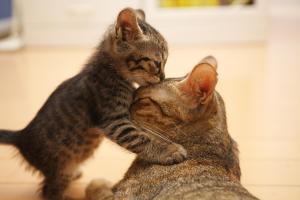
Senior Cats
How to keep your old cat healthy?
As cats age, their health needs change. Senior cats may require more frequent and targeted veterinary care. Here’s what to consider:
- Regular Check-ups: Senior cats should have more frequent check-ups, usually every six months, to monitor for age-related issues like arthritis, dental problems, and organ function.
- Blood Work: Regular blood tests can help detect early signs of kidney disease, diabetes, and hyperthyroidism. Early detection allows for better management.
- Dental Care: Dental health becomes increasingly important as cats age. Dental disease can lead to pain, difficulty eating, and other health problems. Regular dental cleanings and care are crucial.
- Weight Management: Obesity becomes a concern in senior cats. Your veterinarian can help you manage their weight through diet and exercise recommendations. He will tell you about healthy cat food ingredients.
- Mobility and Pain Management: Arthritis is common in older cats. Your vet can recommend ways to improve their comfort and mobility, including pain management strategies.
- Eye and Ear Care: Regular eye and ear examinations can catch issues like cataracts, glaucoma, and hearing loss early.
- Behavioral Changes: Senior cats might experience changes in behavior. Your veterinarian can help determine if these changes are due to age-related issues or underlying medical conditions.
- Environmental Adaptations: Adjust the home environment to accommodate your senior cat’s needs, such as providing softer bedding, easier-to-reach litter boxes, and ramps for climbing.
How to keep your cat healthy and live long? In both life stages, a strong partnership with your veterinarian is essential. Regular veterinary care tailored to the specific needs of kittens and senior cats ensures they receive the best possible attention and support throughout their lives.
Proper Nutrition and Weight Control
Quality nutrition is paramount to a cat’s welfare and health. Cats are obligate carnivores, meaning their diet should primarily consist of animal-based protein. A well-balanced diet provides essential nutrients such as amino acids, vitamins, minerals, and fatty acids necessary for optimal growth, immune function, and organ maintenance. High-quality cat food meets these nutritional needs, promoting healthy skin, coat, digestion, and muscle development.
How to Feed Cats:
- Portion Control: Follow feeding guidelines on the cat food packaging, but adjust portions based on your cat’s age, activity level, and individual metabolism. Portion control prevents overfeeding, which can lead to weight gain.
- Scheduled Meals: Divide your cat’s daily food allowance into several small daily meals. Scheduled feeding prevents binge eating and helps maintain consistent energy levels.
- Avoid Table Scraps: Human food can be inappropriate for cats and contribute to health issues. Stick to cat-specific foods to ensure they receive the proper proportions of nutrients.
- Fresh Water: Always provide fresh water for your cat to stay hydrated.
Maintaining a healthy weight is crucial for your cat’s overall health and longevity. Obesity in cats can lead to various health problems, including diabetes, joint issues, heart disease, and reduced quality of life.
Remember, any changes to your cat’s diet or weight management plan should be done under the guidance of a veterinarian.
Supplements
Cat supplements are necessary in specific situations to address nutritional deficiencies, support health conditions, and promote overall well-being. Cats with certain health issues, such as joint problems or skin conditions, may benefit from targeted supplements to alleviate symptoms and enhance their quality of life. Additionally, senior cats might require supplements to support aging-related concerns like cognitive function and joint health. However, it’s essential to consult a veterinarian before introducing any supplements, as improper use can lead to health risks or imbalances. Our team recommends the following supplements for cats.
Beaphar Salmon Oil (Salmon Oil)
How to keep your cat healthy naturally?
Beaphar Salmon Oil (Salmon Oil) is considered one of the best supplements for cats due to its rich content of omega-3 fatty acids, particularly EPA (eicosapentaenoic acid) and DHA (docosahexaenoic acid).
Omega-3 fatty acids are known to promote healthy skin and a glossy coat. They help reduce shedding, minimize skin dryness, and alleviate itching or inflammation caused by allergies or skin conditions. EPA and DHA have anti-inflammatory properties that can aid in managing joint inflammation and discomfort, making the supplement beneficial for cats with arthritis or joint issues. Omega-3s contribute to cardiovascular health by supporting proper heart function, maintaining healthy blood pressure levels, and reducing the risk of heart diseases.
DHA is a significant brain tissue component linked to cognitive health. It can support brain development in kittens and aid cognitive function in senior cats. Omega-3s modulate the immune response, helping cats maintain a healthy immune system and better resistance to infection. Omega-3 fatty acids can help manage chronic inflammatory conditions, improving comfort and well-being.
Beaphar Salmon Oil is often praised for its high-quality sourcing and processing methods, ensuring that the omega-3 fatty acids are preserved and bioavailable. Make your pet the happiest cat with Beaphar Salmon Oil.
FulCoat (Cod Liver Oil, Soya Oil), 200ml
FulCoat (Cod liver oil, Soya oil), a supplement containing Cod Liver Oil and Soya Oil, is often considered beneficial for cats due to its potential positive effects on their health.
Cod Liver Oil and Soya Oil are rich sources of essential fatty acids, including omega-3 and omega-6. These fatty acids are crucial in maintaining a healthy skin barrier, reducing inflammation, and promoting a shiny, lustrous coat. The supplement can help alleviate skin dryness, itching, and flakiness while minimizing excessive shedding.
Omega-3 fatty acids in Cod Liver Oil possess anti-inflammatory properties that can benefit cats with joint problems or arthritis. These properties help reduce joint inflammation and discomfort, improving mobility and overall comfort. Omega-3 fatty acids support heart health by promoting proper cardiovascular function, maintaining healthy blood pressure levels, and potentially reducing the risk of heart-related issues.
Cod Liver Oil is a natural source of vitamin A, essential for maintaining good vision and eye health in cats. Essential fatty acids have been linked to a healthier immune response, aiding the cat’s ability to fight infections and illnesses.
While FulCoat may offer various potential benefits, it’s essential to remember that supplements should not replace a balanced and appropriate diet. Consultation with a veterinarian is recommended before introducing any supplement, including FulCoat, into your cat’s routine.
Cell-Pet Enhanced (Oxygen, Minerals, Enzymes, and Amino Acids) 10 ml
Cell-Pet Enhanced is a supplement that contains oxygen, minerals, enzymes, and amino acids.
The Oxygen for Life Enhanced Cell Pet Supplement is essential for dogs and cats. This liquid supplement is unique as it contains oxygen minerals in a colloidal form, allowing for a remarkable 95% absorption rate directly into the bloodstream. Notably, this product boasts a side-effect-free composition.
This remarkable supplement constitutes a powerful blend of minerals, metabolic enzymes, and amino acids. The administration is effortlessly simple – just mix it into your pet’s drinking water, and they will readily accept it. The benefits are manifold: it enhances coat luster, aids digestion through increased oxygen content, reduces lethargy and discomfort, and bolsters the immune system against ailments. Additionally, this user-friendly supplement yields quick results and supports bone development effectively.
Vitamins
Like all animals, cats require specific vitamins for growth, metabolism, and overall well-being. These nutrients are necessary for energy production, immune system function, and maintaining healthy skin, coat, and bones. As obligate carnivores, cats have unique dietary requirements that can be met through a balanced and nutrient-rich diet, including high-quality animal-based proteins. While commercial cat foods are formulated to provide essential vitamins, certain factors such as a cat’s life stage, health status, and individual needs may necessitate additional supplementation under veterinary guidance. Our blog recommends the following cat vitamins.
ProviBoost Drops (Arginine, Histidine, Isoleucine, Leucine, Lysine, Vitamins) 15ml and
ProviBoost Syrup (Arginine, Histidine, Isoleucine, Leucine, Lysine, Vitamins) 200ml
ProviBoost Drops and ProviBoost Syrup are nutritional supplements containing a combination of amino acids (Arginine, Histidine, Isoleucine, Leucine, and Lysine) and vitamins. These components provide various health benefits for cats, although it’s essential to consult a veterinarian before adding supplements to your cat’s diet.
Amino acids are the building blocks of proteins essential for various bodily functions. They play a role in muscle growth, tissue repair, and overall metabolism. The specific amino acids listed in the products can be essential for various physiological processes.
Vitamins are vital for various bodily functions, including immune system support, skin and coat health, energy production, and proper growth. Cats require specific vitamins to maintain their overall health and well-being.
These supplements might be recommended for cats with certain health conditions or dietary deficiencies. Amino acids and vitamins can improve energy levels, coat condition, and overall vitality. Some amino acids and vitamins support the immune system, helping cats better fend off infections and illnesses.
These supplements could benefit cats recovering from surgery, illness, or injury. Nutritional support can aid in the healing process and restore energy levels.
Hemeliv (Ferrous Ascorbate, Folic Acid, Vitamin B12, Cobalt) 30 ml
Hemeliv (Ferrous Ascorbate, Folic Acid, Vitamin B12, Cobalt) is a supplement containing Ferrous Ascorbate, Folic Acid, Vitamin B12, and Cobalt. These components are known to be essential nutrients for cats.
Ferrous Ascorbate is a form of iron combined with vitamin C (ascorbic acid) to enhance iron absorption. Iron is a vital mineral that supports the formation of red blood cells and helps prevent anemia, which can lead to weakness and fatigue.
Folic acid, also known as vitamin B9, is crucial for various metabolic processes, including cell division and the formation of DNA and RNA. It’s vital for maintaining healthy tissues and preventing anemia.
Vitamin B12 is essential for nerve function, DNA synthesis, and the production of red blood cells. It’s essential for maintaining energy levels and overall well-being.
Cobalt is a trace mineral that is a component of vitamin B12. It plays a role in synthesizing red blood cells and supports the nervous system.
The combination of these nutrients suggests that Hemeliv may be targeted at supporting blood health and preventing anemia or liver conditions in cats.
Probiotics for the Digestive System
Cats might benefit from probiotics to support their digestive health. Probiotics are beneficial bacteria that help maintain a healthy balance of microorganisms in the gut. They can aid in digestion, prevent gastrointestinal issues, and strengthen the immune system by promoting a healthy gut microbiome. Factors like dietary changes, stress, illness, or antibiotic use can disrupt the natural balance of gut bacteria, and probiotics can help restore that balance and alleviate digestive disturbances in cats. Check Gutwell 50g.
Gutwell (Probiotics, Prebiotics), 50g
Gutwell (Probiotics, Prebiotics) is a supplement containing probiotics and prebiotics designed to promote a healthy gut environment in cats.
Probiotics are beneficial bacteria that contribute to a balanced gut microbiome. They aid in digestion and help maintain a healthy population of gut bacteria, which is crucial for proper nutrient absorption and overall digestive health in cats. Probiotics help restore and maintain the balance of beneficial bacteria in the digestive tract. Stress, diet changes, and illness easily disrupt this balance. A healthy gut microbiome can reduce the risk of gastrointestinal issues and promote regular bowel movements.
The majority of a cat’s immune system resides in the gut. A well-functioning gut microbiome supported by probiotics can enhance the immune response, helping cats fight infections and illnesses more effectively.
Prebiotics are non-digestible fibers that provide nourishment for beneficial gut bacteria. They help create a favorable environment for probiotics to thrive and multiply. By including prebiotics, Gutwell supports the effectiveness of the probiotics it contains.
Cats can experience stress due to factors like environmental changes or veterinary visits. Probiotics can aid in managing stress-related gastrointestinal issues. Additionally, diet changes can disrupt the gut balance, and probiotics can assist in the transition.
A balanced gut can reduce flatulence and less unpleasant odor associated with digestive disturbances.
Gutwell appears to offer potential benefits for cats’ digestive and overall health.
Dental Care
Dental care for cats involves practices and measures to maintain good oral hygiene and prevent dental issues. Cats, like humans, can experience dental problems such as plaque buildup, tartar, gum disease (cat gum white), and tooth decay. Proper dental care ensures your cat’s overall health and well-being. Here are some important aspects of dental care for cats:
- Dental Examinations: During veterinary visits, your vet will examine your cat’s teeth, gums, and oral cavity for any dental issues. Early detection is crucial for effective intervention.
- Professional Dental Cleanings: If tartar buildup or other dental issues are detected, your veterinarian may recommend professional dental cleanings under anesthesia. These cleanings involve scaling to remove tartar and plaque and polishing to smooth the tooth surface.
- Brushing: Regular tooth brushing is one of the most effective ways to prevent cat dental problems. Use a cat-specific toothbrush and toothpaste to clean your cat’s teeth gently. Start slowly and gradually introduce tooth brushing to make it a positive experience for your cat.
- Dental-Friendly Diet: Some specialized cat foods are formulated to help reduce plaque and tartar buildup. These foods may have larger kibbles or special textures that encourage chewing and cleaning of teeth.
- Dental Treats and Toys: Dental treats and toys that promote chewing can help reduce plaque buildup. These products can be helpful between regular brushings.
- Oral Rinses and Gels: Some oral rinses or gels are formulated to support oral hygiene by reducing bacteria in the mouth. These products can be applied to your cat’s gums or added to their drinking water.
- Chewing: Providing appropriate chew toys can help promote healthy teeth and gums by encouraging your cat to chew and gnaw.
- Monitor Behavior: Pay attention to any changes in your cat’s behavior, such as difficulty eating, drooling, or bad breath. These could be signs of dental problems that require attention.
- Prevention: Consistent dental care practices, including regular check-ups, tooth brushing, and appropriate dental products, can go a long way in preventing dental issues and maintaining your cat’s oral health.
Cats are often sensitive about their mouths, so patience and positive reinforcement are key when introducing dental care routines.
Skin and Hair Care
Grooming, bathing, and maintaining proper hygiene are essential to caring for a cat’s skin and coat. Regular grooming involves brushing the fur to remove loose hair, prevent matting, distribute natural oils, and stimulate blood circulation. This keeps the cat’s coat looking beautiful, reduces hairballs, and minimizes shedding around the house. While most cats are adept self-groomers, some long-haired breeds or older cats may need more assistance in maintaining their coats. You may use different cat services.
On the other hand, bathing should be done sparingly and only when necessary, as cats generally groom themselves effectively. Cats may not enjoy the water, so introducing them to bathing gradually and using cat-friendly products can make the process less stressful. Hygiene is crucial because proper grooming helps prevent skin issues like matting, fungal infections, and fleas. Regular grooming sessions also provide an opportunity to spot any abnormalities or potential health concerns early, allowing for prompt veterinary attention if needed. Proper grooming, bathing when appropriate, and maintaining good hygiene contribute to your feline friend’s healthy, comfortable, and well-maintained skin and coat. Using special products for a pet’s skin and coat is essential. We recommend Freshcoat Spray (Jambira, Tulasi, Ushira).
Freshcoat Spray (Jambira, Tulasi, Ushira), 150ml
FreshCoat No Rinse Spray is a convenient solution for those in-between bath moments. Apply a gentle spray to your pet’s coat and brush it through. This remarkable formula not only cleans but deodorizes and untangles, leaving your furry friend’s coat refreshed and fragrant. The blend features key ingredients like Jambira for natural deodorizing, Tulasi for its herbal antiseptic properties, and Ushira, known for its insect-repelling attributes. Ideal for young puppies yet to experience baths, it’s a perfect way to maintain that shining coat.
With Himalaya Freshcoat, your pets’ coats can shine even more brilliantly. The infusion of Tulasil, Jambira, and Ushira, with their antibacterial and insect-repelling qualities, enhances the coat’s luster. This citrus-scented, no-rinse spray not only cleanses but also naturally conditions and detangles your pets’ fur. Himalaya Freshcoat embodies a refreshing fragrance and herbal properties that provide comfort and cooling to your pet’s coat. After application, ensure your pets remain still, brush them, and allow them to dry to prevent the spray from adhering to surfaces. Discover the transformative effects of Himalaya Freshcoat and unveil the splendid, vibrant coats your pets deserve.
Regular Deworming
Deworming your pet is crucial for their health. Intestinal parasites, such as roundworms, hookworms, and tapeworms, can cause various health issues in pets, including digestive problems, weight loss, anemia, and even more severe complications. Regular deworming helps prevent these parasites from taking hold and spreading.
The frequency of deworming depends on factors such as your pet’s age, lifestyle, and risk of parasite exposure. Puppies and kittens should be dewormed more frequently during their early months, usually starting at two weeks of age and continuing every 2-4 weeks until they’re about 3-4 months old. Adult pets generally require deworming every 3-6 months, but this can vary based on factors like whether they go outdoors, interact with other animals, or have certain health conditions.
Keep Your Cat Free of Fleas and Ticks
Protecting your cat from fleas and ticks is crucial for their health and well-being. These parasites can cause various problems, from irritating skin reactions to severe infestations and even the transmission of diseases. Fleas can lead to intense itching, allergies, and skin infections, while ticks can transmit serious illnesses such as Lyme disease, Bartonellosis, and more. Preventing infestations helps your cat avoid discomfort, pain, and potential complications. Fleas and ticks can also infest your home, causing problems for both your cat and your living environment. Regular preventative measures, such as using flea and tick treatments recommended by your veterinarian, help maintain a safe, comfortable, and healthy life for your feline companion. Our authors recommend Fiprofort Plus Cats and Kittens.
Fiprofort Plus Cats and Kittens (Firpronil + Methoprene) 0,5 ml
Fiprofort Plus Cats and Kittens is a topical solution that combines two active ingredients, Fipronil and Methoprene. This product is commonly used as a spot-on treatment for cats to control and prevent flea and tick infestations.
Fipronil is an insecticide that effectively kills adult fleas and ticks on cats. It disrupts the nervous system of these parasites, leading to their elimination.
Methoprene is an insect growth regulator that inhibits the development of flea eggs and larvae. Targeting the flea life cycle at different stages helps prevent the emergence of new generations of fleas.
Fiprofort Plus provides extended protection against fleas and ticks, usually for a month after application. This reduces the risk of re-infestations and keeps your cat more comfortable. The spot-on application is relatively simple and convenient. A small amount is applied directly to the skin at the base of the cat’s neck, and the ingredients spread through the skin’s oils.
By targeting both adult and immature stages of fleas, Fiprofort Plus helps break the flea life cycle and control infestations more effectively.
Flea and tick infestations can lead to itching, irritation, and even allergic reactions in cats. Using Fiprofort Plus can provide relief by eliminating these pests. Fleas and ticks can transmit diseases to both cats and humans. Regular use of an effective flea and tick treatment like Fiprofort Plus reduces the risk of disease transmission.
Watch for Warning Signs
It’s essential to be vigilant about your cat’s health and to recognize warning signs that might indicate the need to contact your veterinarian for medical attention. Some common warning symptoms in cats include:
- Changes in Eating or Drinking: If your cat suddenly loses interest in food or water, experiences a significant decrease in appetite, or starts drinking excessively, it could be a sign of underlying health issues.
- Vomiting or Diarrhea: Occasional vomiting or diarrhea may not be cause for concern, but if it becomes frequent, severe, or is accompanied by other symptoms like lethargy, dehydration, or blood in the stool, it’s time to contact your vet.
- Lethargy or Weakness: A noticeable lack of energy, reluctance to play, sudden weakness, or a sweaty cat can indicate various illnesses and immediate veterinary attention might be necessary.
- Breathing Difficulties: Rapid or difficult breathing, wheezing, coughing, or any other signs of respiratory distress require prompt evaluation by a veterinarian.
- Changes in Urination: Straining to urinate, frequent trips to the litter box, blood in urine, or urinating outside the litter box can signal urinary tract issues or other medical problems.
- Unexplained Weight Loss or Gain: Sudden weight changes can indicate underlying health concerns such as thyroid issues, diabetes, or digestive disorders.
- Changes in Behavior: Drastic changes in behavior, such as increased aggression, sudden withdrawal, or significant changes in social interaction, may indicate pain, stress, or illness.
- Persistent Scratching, Itching, or Hair Loss: Excessive scratching, itching, hair loss, or skin irritations may be signs of allergies, parasites, or skin infections that require veterinary attention.
- Eye or Nose Discharge: Unusual or persistent discharge from the eyes or nose, pale cat nose, or cold ears in cats, especially if accompanied by sneezing or coughing, could indicate respiratory infections or other issues.
- Lumps or Bumps: Any new or growing lumps, bumps, or swellings should be evaluated by a veterinarian to rule out tumors or other health concerns.
- Difficulty Walking or Moving: Sudden lameness, stiffness, or difficulty in moving may signal pain or joint problems.
- Seizures or Tremors: Seizures, convulsions, or tremors require immediate veterinary attention, as they could indicate neurological issues.
If you notice any of these warning signs or any other unusual behaviors or symptoms in your cat, it’s best to contact your veterinarian for guidance. Early intervention can help prevent potential complications and ensure your cat receives the appropriate care and treatment.
Support Cat’s Immune System
A strong immune system helps cats fight infections, diseases, and other health challenges. It enables their body to recognize and combat harmful pathogens, viruses, and bacteria. By bolstering the immune system, you can help your cat maintain better resistance to illnesses, recover more effectively from health issues, and enjoy a higher quality of life. Proper nutrition, regular veterinary care, a healthy lifestyle, and immune supplements contribute to maintaining a robust immune system in cats. Try Immuno Plus 50ml supplement.
Immuno Plus (Vitamins, Zinc, Magnese, Magnesium, Colostrum, Niacinamide), 50ml
Immuno Plus is a supplement designed to support and boost a cat’s immune system. It contains ingredients that enhance the immune response and overall immune system function in cats. It includes vitamins, minerals, antioxidants, and herbal extracts that provide immune support.
The potential benefits of the immune-boosting supplement Immuno Plus include improved resistance to infections, faster recovery from illnesses, and enhanced overall vitality. The efficacy and safety of these products can vary, and a veterinarian can guide you on whether the supplement is appropriate for your cat’s needs and health status.
FAQ
Are Cats Easy to Take Care of?
Cats are generally considered low-maintenance pets compared to some other animals. They are independent, often groom themselves, and use a litter box. However, they still require attention, proper nutrition, regular veterinary care, playtime, and a clean environment to thrive.
How to Keep Your Cat Clean and Healthy?
Regular grooming, including brushing to prevent matting and hairballs and occasional baths if needed, can help keep your cat clean. Additionally, ensure they receive a balanced diet, regular exercise, vaccinations, flea and tick prevention, and dental care. Regular veterinary visits for check-ups are crucial for maintaining their overall health.
Are Cats Happy Indoors?
Many cats can be content and happy living indoors, provided they have environmental enrichment. Offer scratching posts, interactive toys, climbing structures, and windows with bird feeders to stimulate their minds and bodies. Some cats enjoy supervised outdoor time, but it is essential to ensure their safety and protection from potential dangers.
How to Keep Your Cat at a Healthy Weight?
Maintaining a healthy weight is vital to prevent obesity-related health issues. Provide portion-controlled, high-quality cat food, engage your cat in regular play and exercise, and avoid excessive treats. Consult your veterinarian for guidance on your cat’s specific dietary needs.
How to Comfort a Sick Cat?
If your cat is sick, ensure they have a quiet and comfortable resting cat’s place. Keep them hydrated by offering water or specialized rehydration solutions. Offer their favorite foods if they’re eating, and monitor their symptoms closely. Contact your veterinarian for advice and potential treatment if their condition worsens or doesn’t improve.
How to Keep Your Cat’s Mouth Healthy?
Regular dental care is vital. Offer dental treats, toys, or consider brushing your cat’s teeth. Schedule professional dental cleanings with your veterinarian when needed. Signs of dental issues include bad breath, difficulty eating, drooling, and inflamed gums. Dental health contributes to your cat’s overall well-being.

